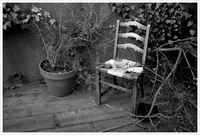The term ‘enlightenment’ was not mentioned in the Quran, but the stem ‘light’ was mentioned 43 times, as in these verses : -“Wherewith Allah guideth all who seek His good pleasure to ways of peace and safety, and leadeth them out of darkness, by His Will, unto the light, guideth them to a Path that is Straight”. -“O People of the Book! there hath come to you Our Messenger, revealing to you much that ye used to hide in the Book, and passing over much (that is now unnecessary): There hath come to you from Allah a (new) light and a perspicuous Book”.
“And in their footsteps We sent Jesus the son of Mary, confirming the Law that had come before him: We sent him the Gospel: therein was guidance and light, and confirmation of the Law that had come before him: a guidance and an admonition to those who fear Allah”. “Allah is the Light of the heavens and the earth. The parable of His Light is as if there were a Niche and within it a Lamp: the Lamp enclosed in Glass; the glass as it were a brilliant star: lit from a blessed Tree, an Olive, neither of the East nor of the West, whose Oil is well-nigh luminous, though fire scarce touched it: Light upon Light! Allah doth guide whom He will to His Light: Allah doth set forth Parables for men: and Allah doth know all things”. The holy scriptures were messages from God to His prophets to bring mankind out of darkness to light. In this way, God’s guidance is closely linked to light, that is a guidance to Mankind. “Or (the Unbelievers' state) is like the depths of darkness in a vast deep ocean, overwhelmed with billow topped by billow, topped by (dark) clouds: depths of darkness, one above another: if a man stretches out his hand, he can hardly see it! For any to whom Allah giveth not light, there is no light!”. We notice here that light is mentioned in the Quran as a singular noun, whereas obscurities are mentioned as plural. This is a very exact description because God is the source of every light. Therefore, light must be singular, unlike obscurities. A man whom God guides to light lives in permanent enlightenment. God’s light is like no other light. “Whatever beings there are in the heavens and the earth do prostrate themselves to Allah (acknowledging subjection) - with good-will or in spite of themselves - so do their shadows in the mornings and evenings”. In this analogy, God compares non-belief to obscurities and belief to light. In his book entitled ‘The Synthesis of Eloquence’, Essabouni says: “this is one of the best analogies because non-belief is like the obscurity where the confused is lost, and belief is like light, where the confused is guided. Belief is rewarded with paradise and non-belief is punished with hell”. The meanings of the Quran are the best illustration of the Islamic concept of enlightenment. |
Always wanting to: Inspire souls.. :) Touch hearts.. :) Hearten minds.. :) Patch up bodies.. :) >Most importantly< >>with respect<<
Saturday, October 08, 2005
Subscribe to:
Post Comments (Atom)

No comments:
Post a Comment